Dinner with Emily: A Chinese Peranakan Musical of Love, Loss and Legacy
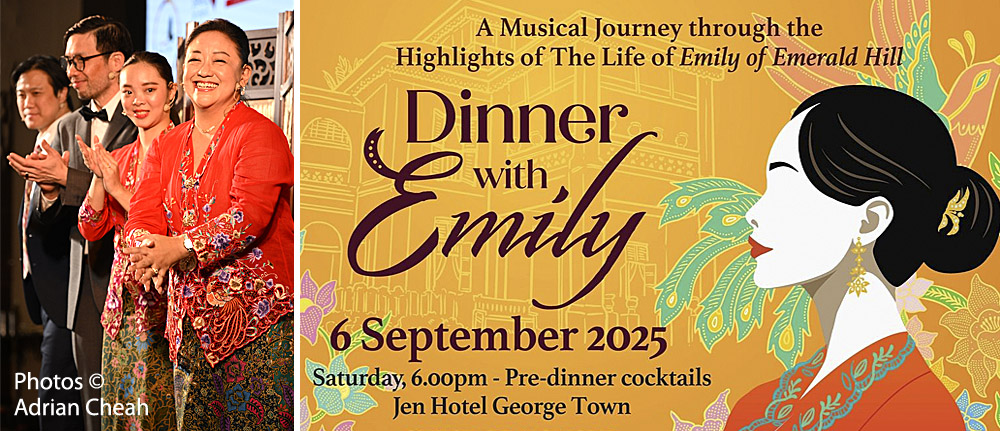
On Saturday, 6 September 2025, I had the privilege of attending "Dinner with Emily" at JEN Penang Georgetown by Shangri-La. This was the first time the musical adaptation of Emily of Emerald Hill was performed in Penang, bringing together food, theatre and music in a joyous celebration of Chinese Peranakan culture.
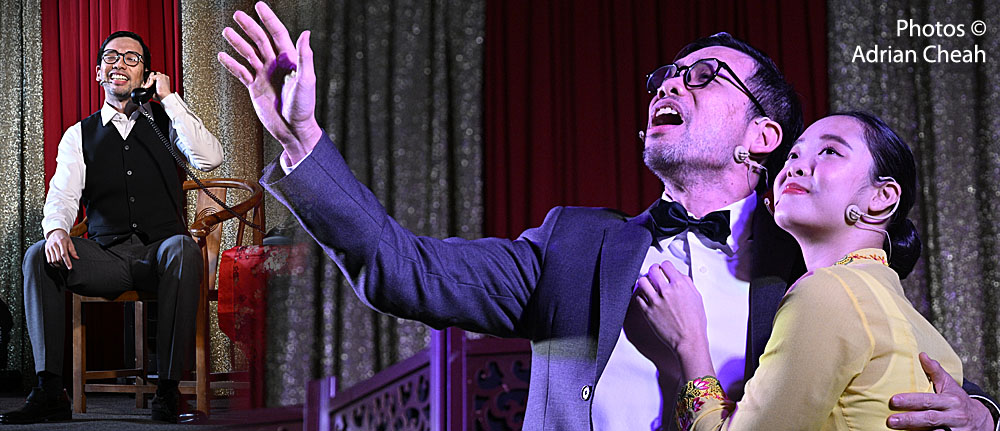
Having watched Pearlly Chua’s powerful performance of the original play years ago, I was curious to see how the story would be transformed into a dinner-theatre musical. To my delight, the adaptation by Singapore’s Serendip Musicals, directed by Eleanor Tan, was both refreshing and entertaining. With Stella Kon, the original playwright and lyricist, working alongside the creative team, Emily’s sweeping life story was distilled into a series of musical vignettes that captured her journey through love, ambition, loss and betrayal.
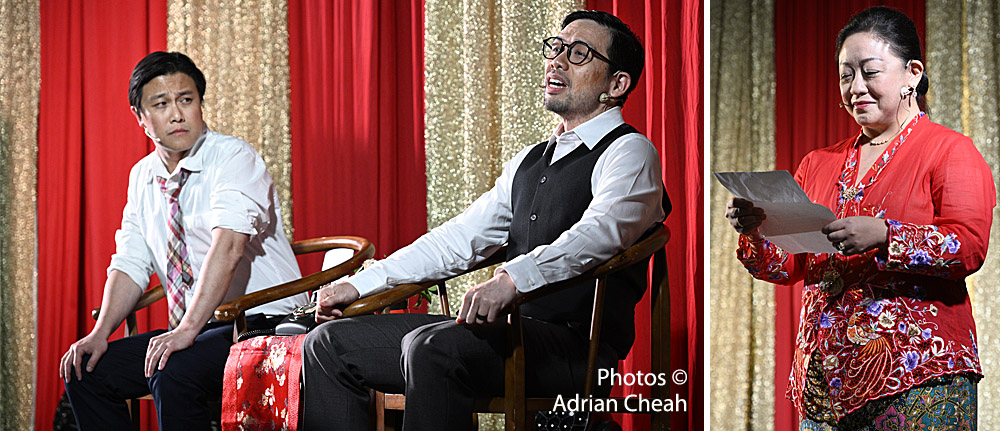
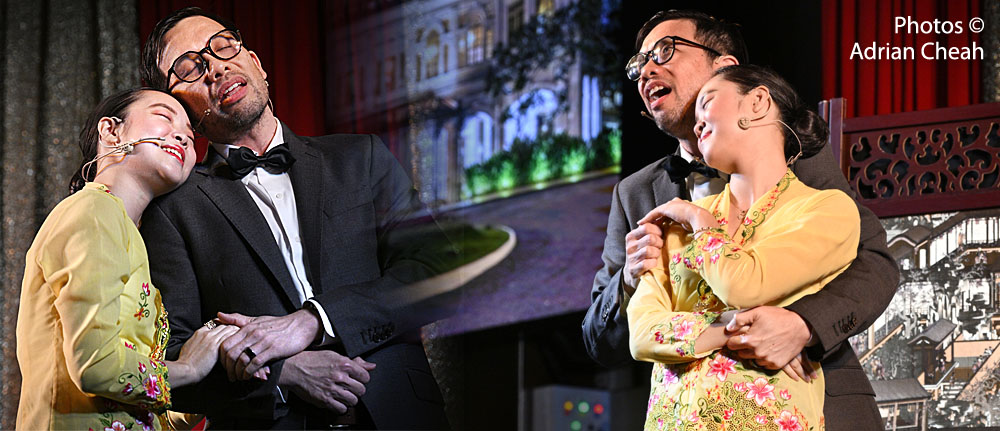
What made the evening unforgettable was its immersive format. The performance unfolded in three acts, each timed between the courses of a four-course Nyonya-inspired dinner. As we savoured the familiar flavours rooted in Chinese Peranakan cuisine, the story of Emily Gan, the formidable Nyonya besar, came alive within the ballroom.
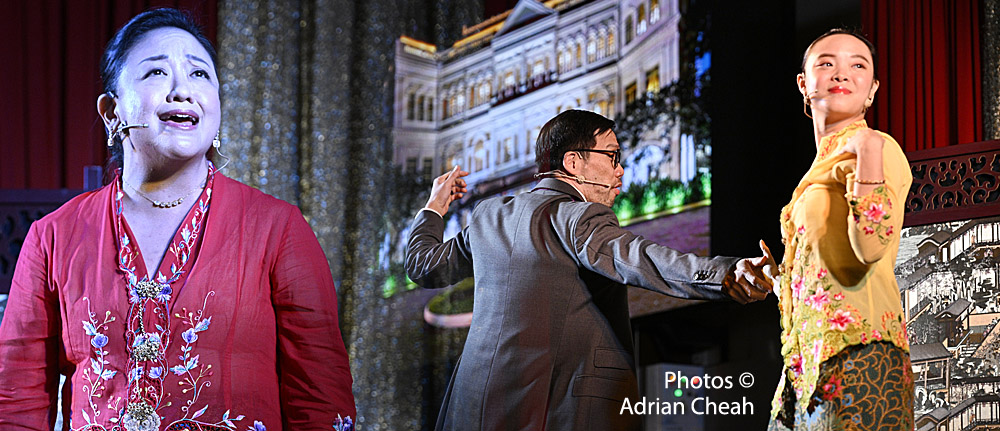
Four gifted performers—Nicole Erh, Eleanor Tan, Ivan Choong, and Leslie Tay—carried us through Emily’s world. Their voices were more than performances; they became vessels of raw emotion, pulling us into Emily’s household, her triumphs, and her heartbreaks. Each inhabited their role with nuance: Ivan as Kheong, the husband caught between duty and distance; Leslie as Richard, the son torn between passion and expectation; Nicole as the young Emily, tender with vulnerability and longing; and Eleanor as the mature matriarch, embodying Emily’s commanding presence in her later years.
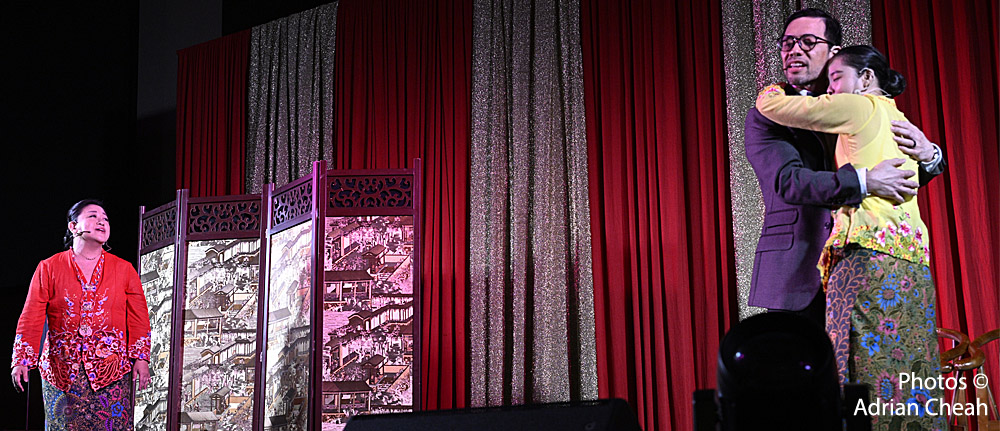
Coming from a Chinese Peranakan family myself, many scenes struck a deep chord. The sharp edges of parental expectation, the pride in tradition and the weight of family duty are realities that cross generations. Emily’s struggle to hold her family together while grappling with her own reality felt familiar, like echoes of conversations overheard at dining tables past.
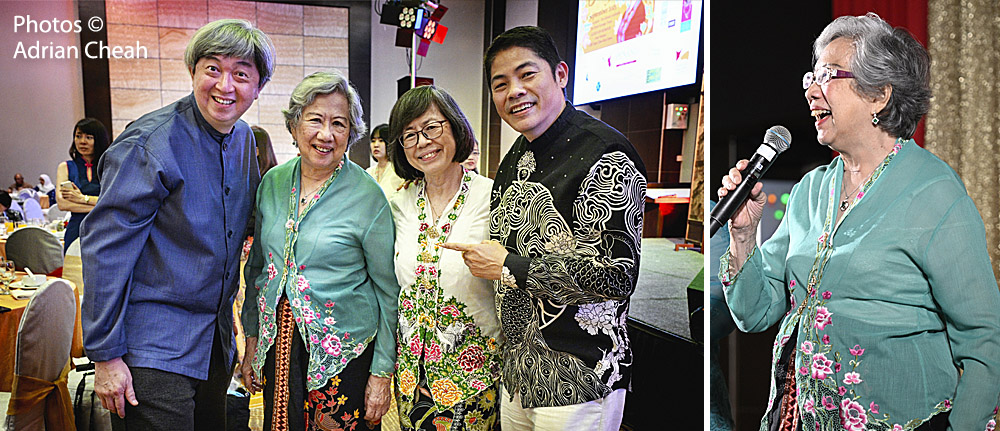
From left: Desmond Moey, Stella Kon, Lillian Cheah and Adrian Cheah.
That evening was also the first time I met Stella Kon. I could not resist telling her how deeply moved I was by the brilliance with which she crafted Emily. What struck me most was the universality of the story. Beneath the kebayas and cultural textures lies a tale that transcends heritage. Love, betrayal, sacrifice and the longing to be seen are truths we all share. That is why Emily of Emerald Hill, first written in 1982 and premiered in 1984, continues to endure as one of Southeast Asia’s most iconic stage characters.
Perhaps the story resonated with me because my own petite maternal grandmother, a Nyonya, was also named Emily. Though she lived a very different life, she embodied enduring strength, quiet resilience and unconditional love.
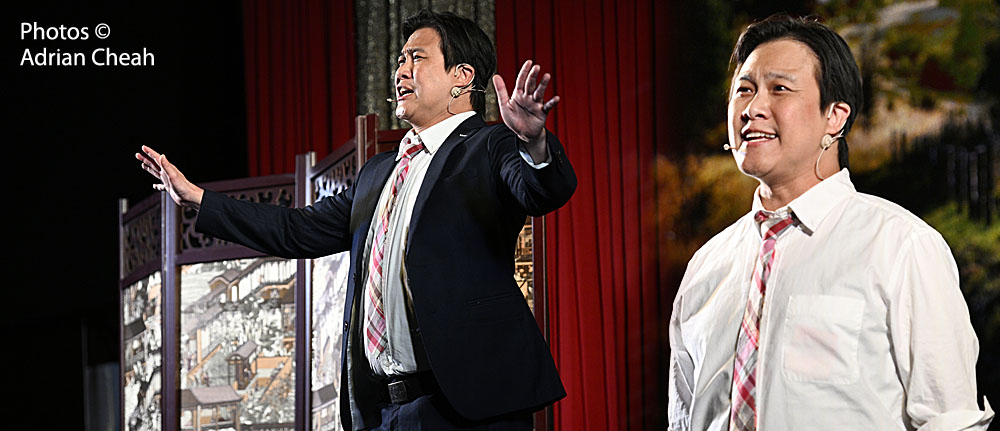
Leslie Tay as Richard, a son caught between his own desires and the weight of his mother’s expectations.
My sister Lillian was with me that evening. As a mother of five adult children, she seemed quietly drawn into Richard’s story, Emily’s son who was driven to a tragic breaking point. Like Emily, Lillian wants nothing more than the best for her children. Yet watching that tension unfold, the moment when love hardens into pressure, must have struck a deep chord. When does nurturing become nudging? At what point do our hopes for our children turn into expectations that burden rather than support?
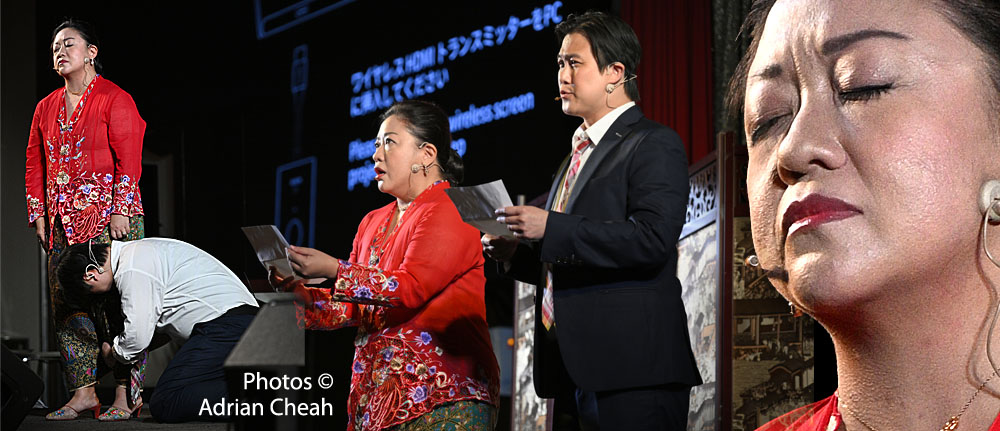
That very conflict, between the heart’s intent and its unintended consequences, lies at the core of Stella Kon’s narrative brilliance. Stella was born in Edinburgh in 1944 but was raised amidst the rich Peranakan culture of Emerald Hill, in a grand family mansion called Oberon under the watchful presence of her grandmother. These childhood memories of matriarchal strength, blended with stories of family legacy, inspired her to create Emily. The character is deeply rooted in Chinese Peranakan custom yet resonates with a universality of humanity that continues to speak across cultures and generations.
Her writing resonates across time because it draws from both the personal and the collective. Emily Gan may have driven her son toward a tragic fate, but she acted out of love, the kind of fierce love that can protect yet also suffocate. That is why the play continues to move audiences today and why its reimagining in this musical feels so emotionally alive.
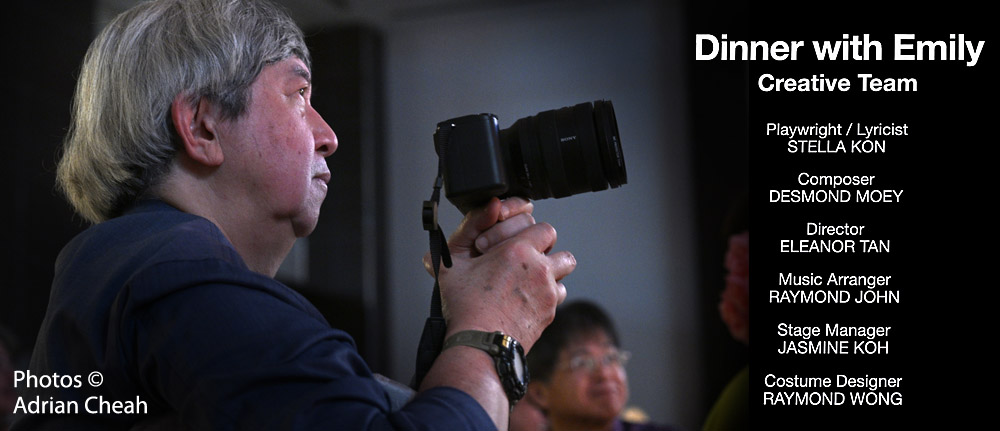
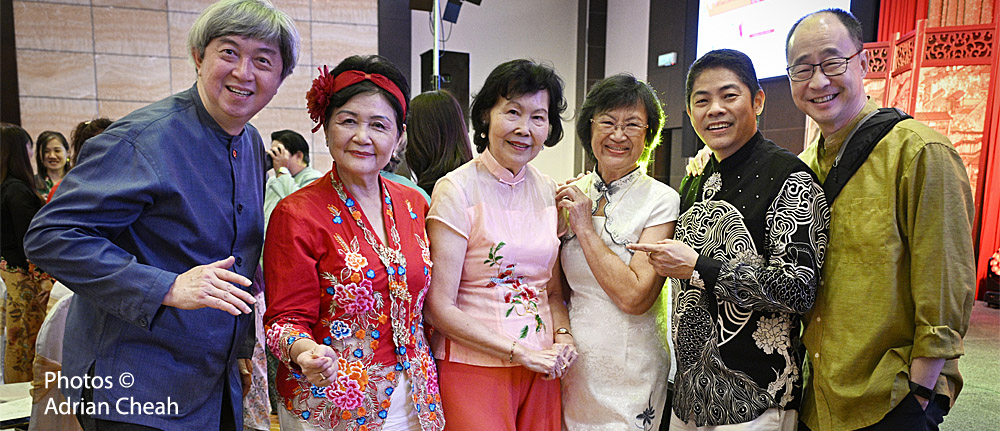
The score of Dinner with Emily carried the production with as much weight as the storytelling. Composer Desmond Moey, a veteran of Singapore’s musical theatre, wove Peranakan textures into melodies that felt both rooted and universal. His earlier works, including Emily the Musical and Lim Boon Keng: The Musical, reflect the same blend of precision and heart. Complementing this was music arranger Raymond John, whose experience in large-scale productions added clarity and emotional depth to the soundscape. Together, they gave Emily’s story a musical voice that was at once intimate and enduring.
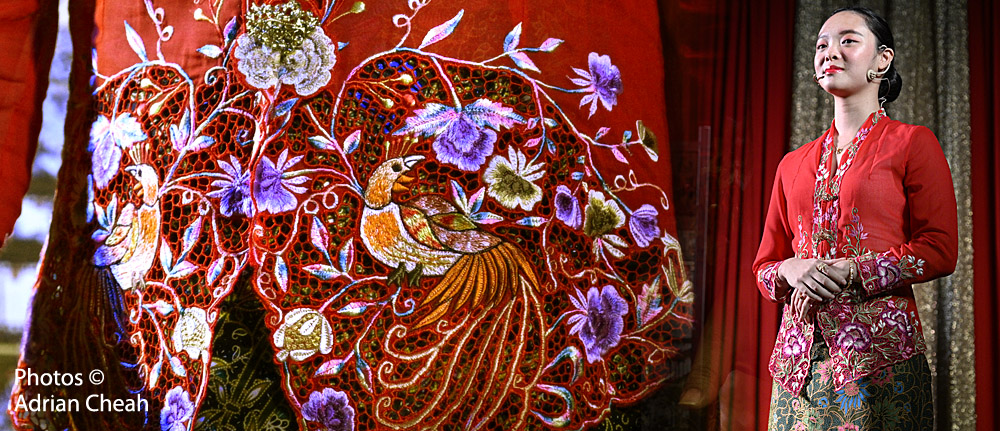
The costumes, designed by the creative Raymond Wong were stunning—bright, elegant kebayas that honoured Chinese Peranakan heritage. They reminded me that cultural garments are never just attire; they are carriers of memory, history and identity.
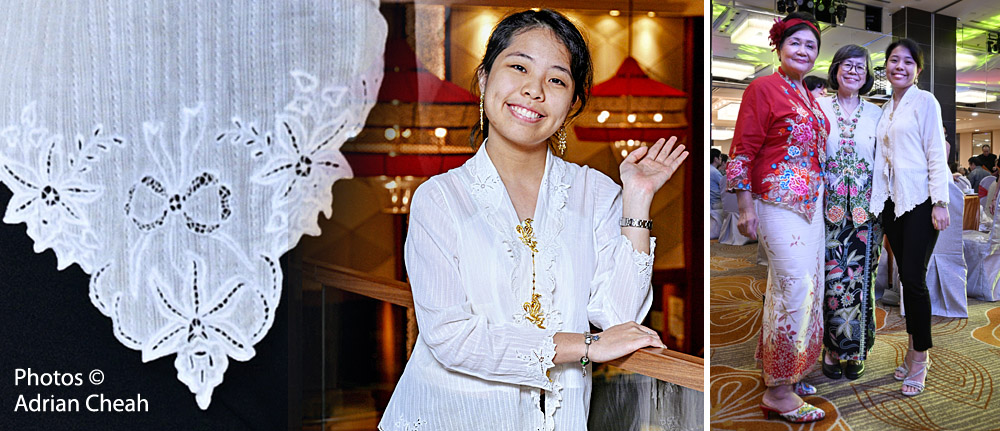
That evening, my daughter Jean was with me, dressed in a vintage white kebaya fastened with a string of golden phoenix kerongsangs. In a modern twist, she paired it not with a sarong but with sleek black pants, a bold blend of tradition and contemporary style. Watching Emily’s story unfold on stage while seeing Jean beside me in her own interpretation of heritage attire was a poignant reminder that culture is never static. Just as Emily sought to define herself within the expectations of her time, younger generations like Jean are finding their own ways to honour tradition while making it relevant to their lives today.
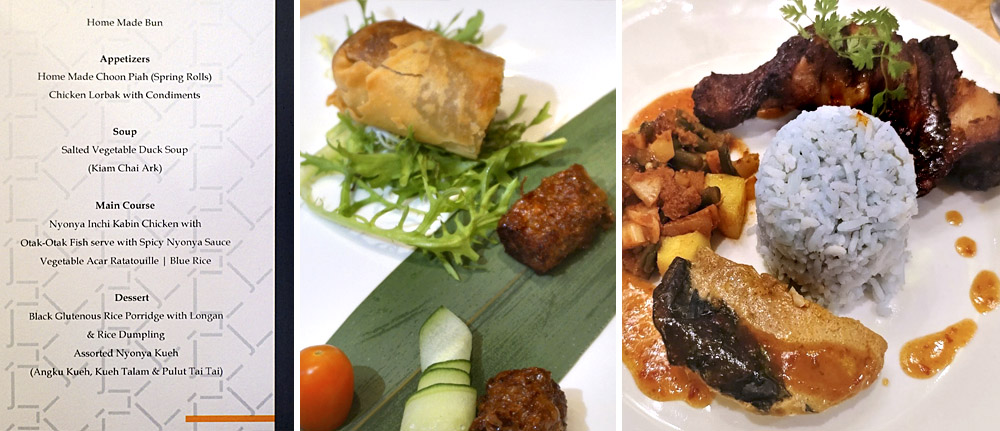
Menu highlights: choon piah and chicken lorbak; kiam chye ark (salted vegetable duck soup); inchi kabin, otak-otak, acar awak and blue-tinted rice; ending with bee koh moy (black glutinous rice porridge) served with rice dumpling and petite Nyonya kuih.
At my table were Cecelia Lim, Lawrence Oo and I, all admittedly fussy eaters and, I daresay, accomplished cooks in our own right, raised on the rich traditions of Chinese Peranakan cuisine. And as any true-blue Peranakan will tell you, food is something we approach with exacting standards. Perhaps that is why the four-course meal that evening felt like the weaker link in an otherwise beautiful production. To be fair, dishes prepared in bulk for a large crowd can rarely match the care and precision of home cooking. Yet, in the end, it was not the food that lingered with us but the story of Emily, told with such heart.
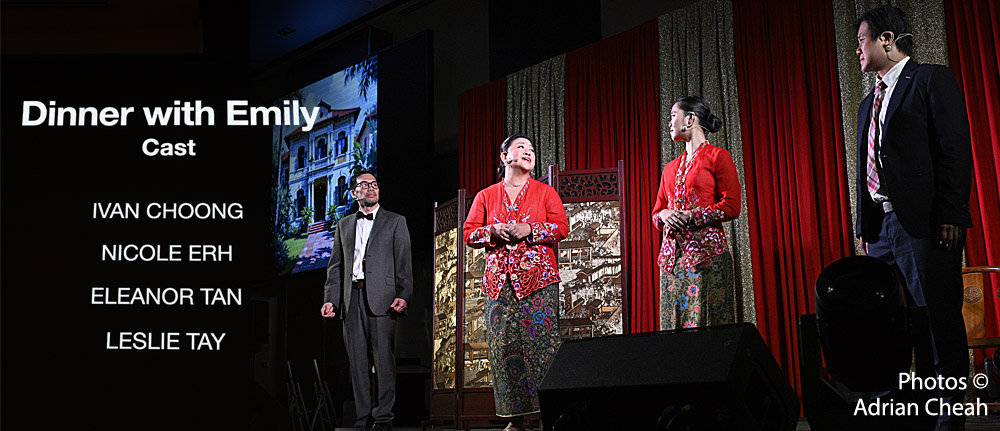
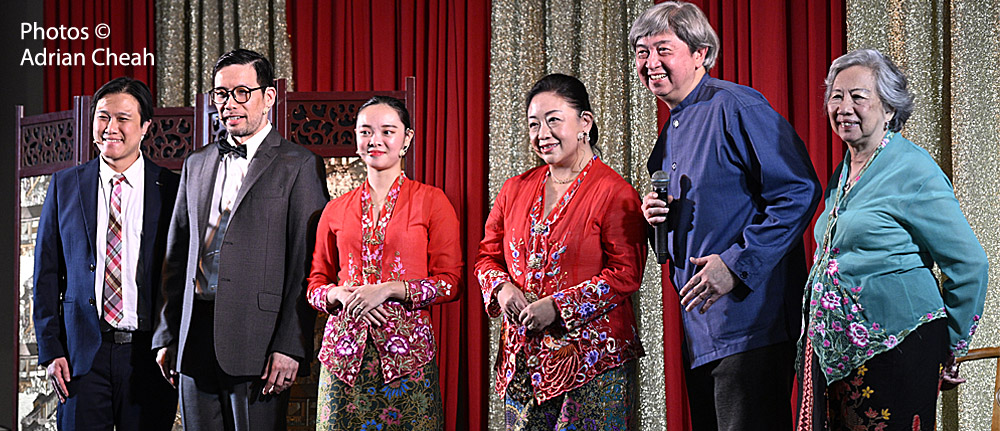
After the final note was sung and dessert was served, I realised that Dinner with Emily had given me something rare: a new lens through which to view a familiar story. It was never about replacing the original play but about reintroducing Emily in a form that spoke to both seasoned fans and newcomers. For me, it became a reminder of the resilience, fragility and humanity that bind us all.
-------------------------------------
Written by Adrian Cheah
Photographed by Adrian Cheah, Eric Yeoh & S. Gopal
© All rights reserved
6 September 2025
If you enjoyed this story, you may like to bookmark this site or return for future essays.
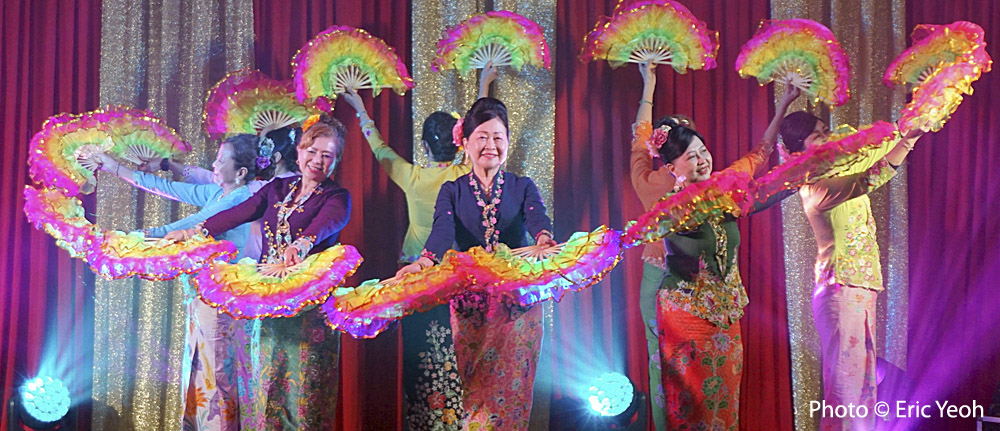
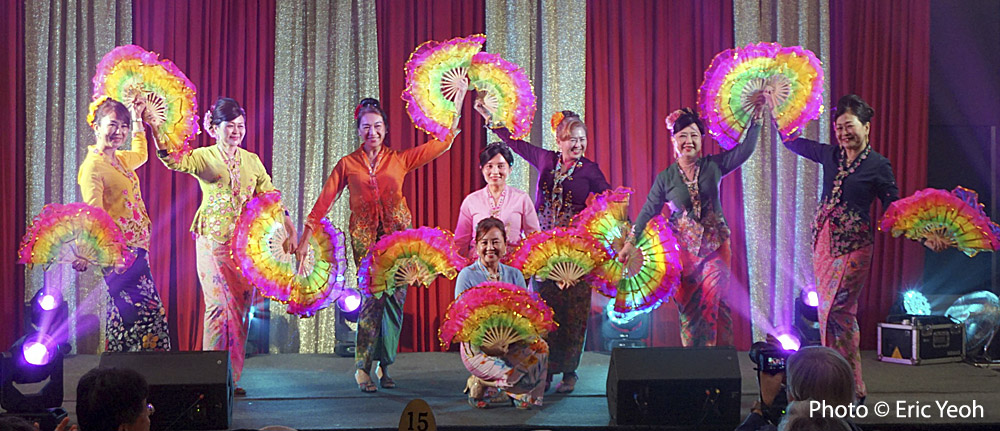
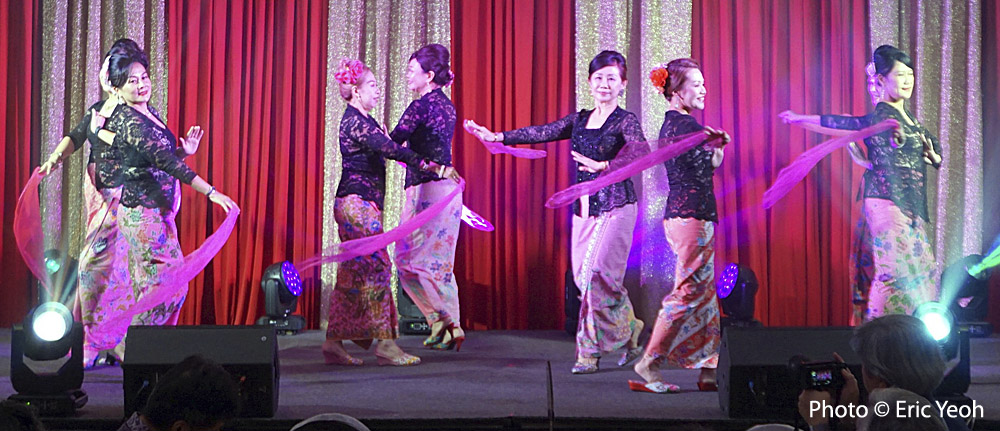
P.S. Prior to the musical, two graceful Nyonya dances were performed: "Timang Timang" by the Sayang Sayang Dancers and "I Love You" by the Bunga & Bintang Dancers.
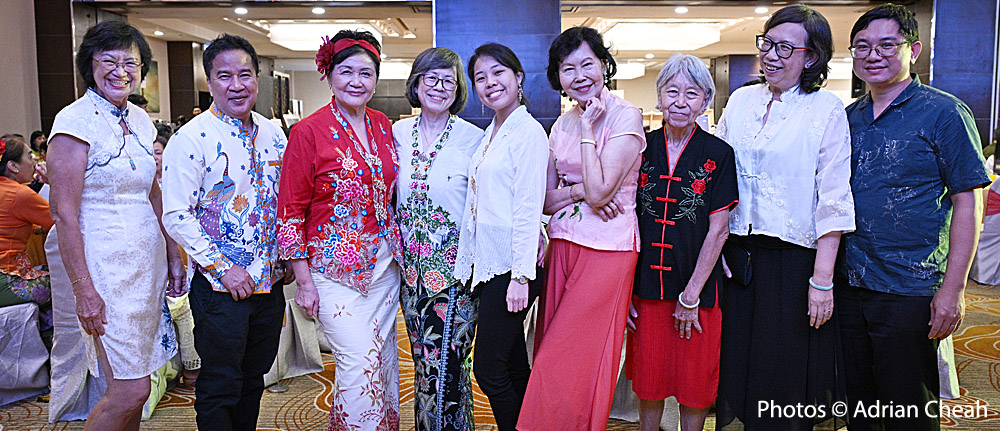
Many thanks to Auntie Suan See for hosting us, courtesy of her son, Dr Alfred Khoo. We all wished she could have been there, as her presence would have made the evening even more special.
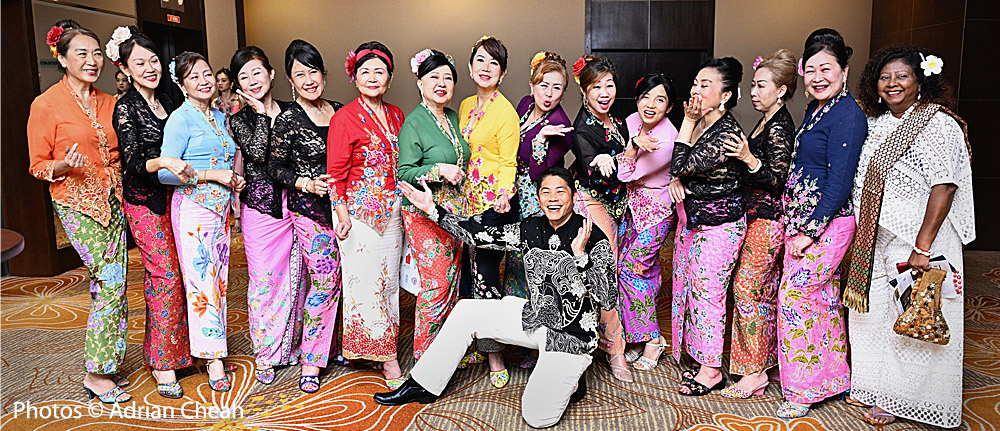
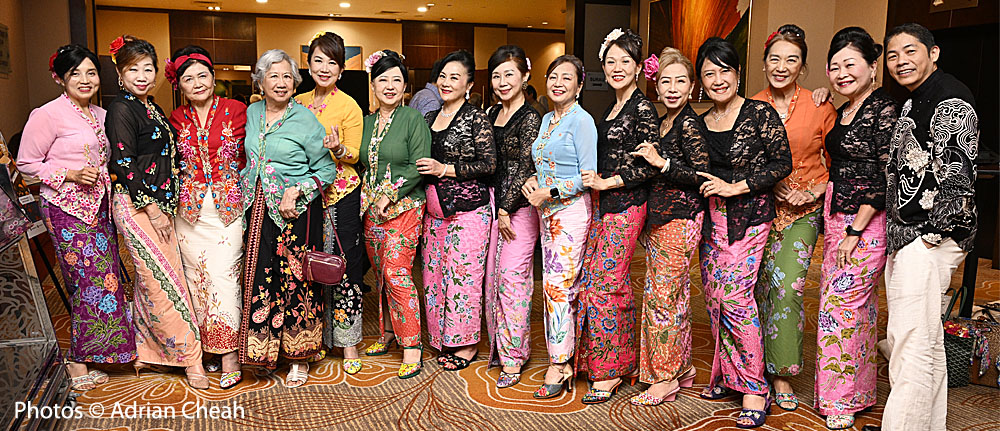
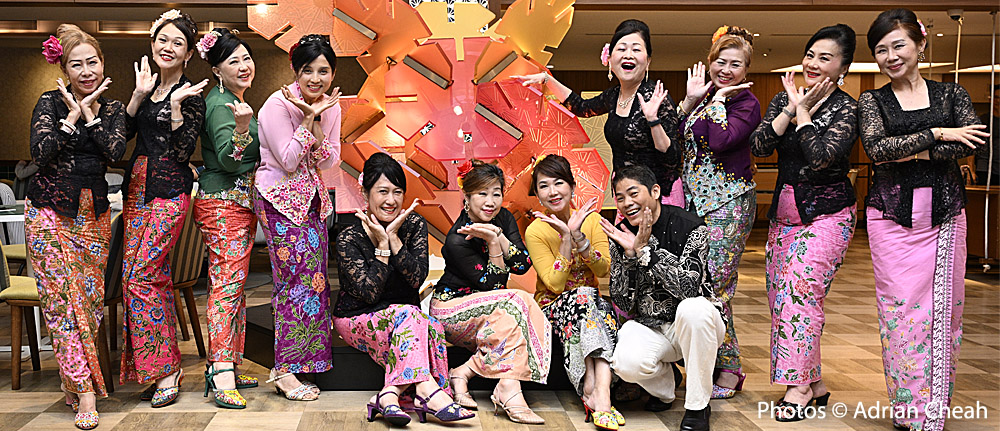
It was heartening to see so many familiar faces from the State Chinese (Penang) Association turn up in support of initiatives celebrating our shared heritage.
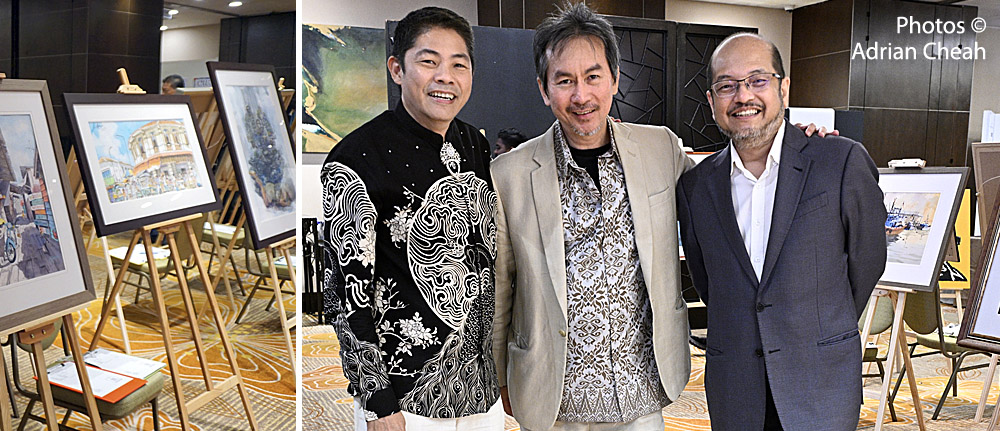
Frem left: Adrian Cheah, Winfred Khoo and Lee Khai.
The event brought together cultural figures, diplomats, business leaders, and members of the global Chinese diaspora in what organisers described as a symbolic convergence of art, identity, and dialogue. Under the leadership of Winfred Khoo, Founder Director of the Commonwealth of World Chinatowns (CWC), the CWC Conference 2025 reflected his vision of transforming Chinatowns into platforms for cultural exchange and global dialogue. Auntie Suan See must surely have beamed with pride for her son Winfred, whose efforts are making such a difference in bringing stories like Emily to Penang and fostering meaningful cultural connections.
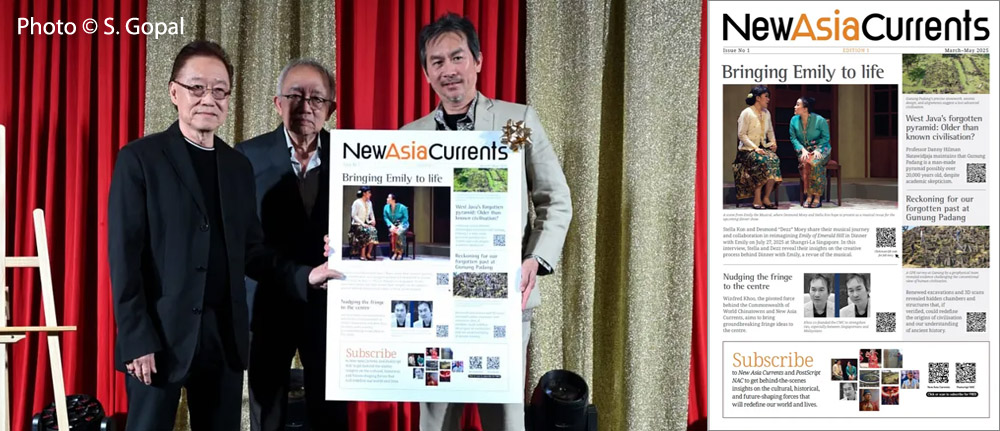
From left: Sebastian Lim, Lim Siang Jin and Winfred Khoo with the inaugural NAC Newsletter.
The evening also marked the launch of the regional media initiative New Asia Currents (NAC), which runs NAC PostScript and NAC Focus. This was created to amplify Asian perspectives in a global media environment, according to editor Sebastian Lim.